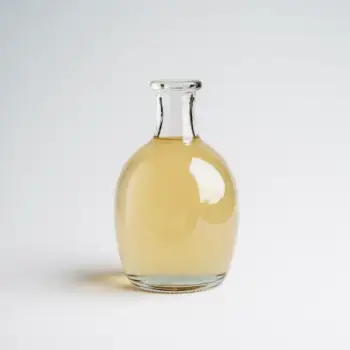Citric Acid and White Vinegar are souring agents used in cooking. Citric Acid, a powder from citrus fruits, is used for canning and flavoring. White Vinegar, a liquid from fermented alcohol, is great for pickling and dressings. They offer distinct tastes and are not always interchangeable.

Citric Acid is a natural preservative and a sour flavoring agent derived from citrus fruits like lemons and limes. It's commonly found in powder form and used in canning, candy making, and as an emulsifying agent.

White Vinegar, made by fermenting distilled alcohol, is a staple in pickling, marinades, and salad dressings. Its sharp, pungent flavor can be used for cleaning purposes as well, highlighting its versatility.
Citric Acid is a concentrated powder with a lemony sourness, while White Vinegar is a liquid with a sharp and clean acidic taste. Citric Acid is a stronger acidulant, whereas White Vinegar brings its distinct vinegary flavor to dishes, along with acidity.

Your ultimate Recipe Box, Meal Planner, and Cooking Class all in one
Ideal for canning fruits and vegetables, ensuring high acidity for proper preservation. Expect a bright, tartness without altering flavor profiles. Tip: Use in small quantities to avoid overt sourness. Best for pickling, providing a classic tangy flavor. It can also be used to preserve condiments. Expect a pronounced vinegar taste. Tip: Dilute with water to moderate intensity.
Used in small amounts to activate baking soda, resulting in a fluffier texture. Expect it to subtly enhance the flavors without contributing moisture. Tip: Combine with dry ingredients before mixing. Often paired with baking soda as a leavening agent for quick bread and cakes. Expect it to react and create airy textures. Tip: Add sparingly to avoid vinegar aftertaste.
Perfect for homemade sodas and cocktails, giving a refreshing sour kick without altering the liquid balance. Expect a clean, sour zing. Tip: Dissolve in a small amount of water before adding. Rarely used in beverages due to its overpowering taste. Could be used in shrubs or as a drink cleaner. Expect strong acidity. Tip: Experiment with caution and in minute quantities.
Citric Acid can be substituted with White Vinegar in recipes where the liquid content can be adjusted. However, the reverse may not be suitable due to the flavor profile differences. When substituting, expect a texture and flavor variation in the dish.
Citric Acid is calorie-free and used in smaller quantities, whereas White Vinegar has minimal calories and can be used in larger volumes.
| Nutrient | Citric Acid ( per Teaspoon ) | White Vinegar ( per Teaspoon ) |
|---|---|---|
| Fat | 0g | 0g |
| Sodium | 0mg | 0mg |
| Calcium | 0mg | 0mg |
| Protein | 0g | 0g |
| Calories | 0 | 0 |
| Carbohydrates | 0g | 0g |
They can be substituted for each other in some recipes, but due to flavor differences, it's not always recommended.
Yes, Citric Acid is a stronger acidulant and is often used in smaller quantities than White Vinegar.
White Vinegar can be used for canning, especially for pickling, but it will impart a different flavor than Citric Acid.
Yes, Citric Acid is derived from citrus fruits, making it a natural ingredient.
White Vinegar is best used in pickling, marinades, salad dressings, and as a component in some baking recipes.